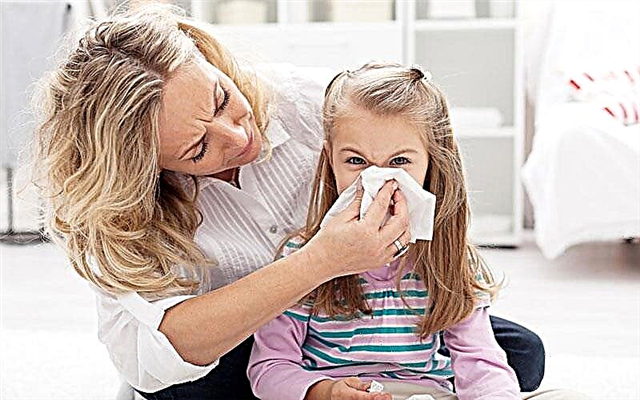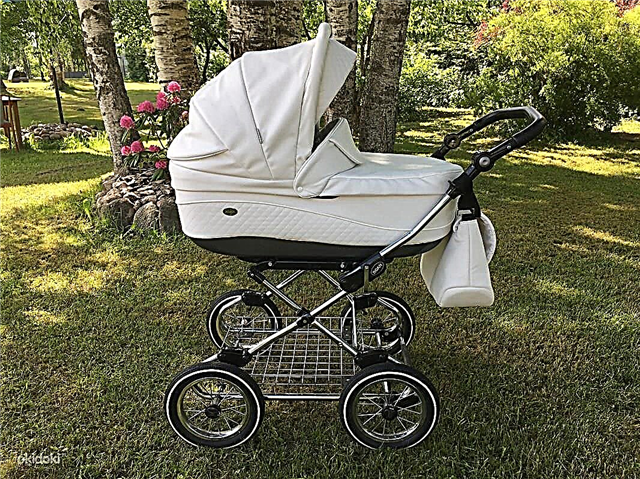Diarrhea (diarrhea) is a loose bowel movement that is repeated more than three times a day. Diarrhea kills more than 750,000 children around the world every year, under the age of five. More than 1.7 billion cases of gastrointestinal disorders are registered by doctors. This means that the topic of diarrhea is one of the most relevant.

Potty kid
Causes of blood-streaked diarrhea in a child
Diarrhea is a sign of intestinal infection, whether the stool is streaked with blood or not. Non-infectious causes of diarrhea can be:
- eating peas and grapes by a child;
- unwashed or stale food;
- concentrated decoction of raisins or dried apricots.
Peas and grapes should be given to children under one year old either in dosage or not at all. These products are poorly chewed, often they are not chewed at all by children, which is why the intestine reacts violently to large fruits: the stomach swells up, the intestines actively spasm.
A concentrated decoction of raisins can cause diarrhea, because it contains substances that increase intestinal motility, which makes food processing faster and resembles intestinal inflammation.

Boy and grapes
Attention! If the child was treated for any disease with drugs in the form of rectal suppositories, the cause of diarrhea will be the substances that thin the stool in such drugs. Such diarrhea will end immediately after suppository treatment stops.
Concomitant symptoms of loose stools
Diarrhea with blood in a child is most often the result of damage to the gastrointestinal tract. In this case, in the diaper or pot, in addition to feces, you can see a small amount of red threads - blood streaks. This can happen during the movement of large fragments of food through the intestines.
Diarrhea streaked with blood in an infant under 6 months of age is a normal variant. In most cases, there is no need to worry if the general condition is not disturbed. In children of this age, the stool is always soft, because they feed exclusively on milk. Blood veins are the result of adaptation of the mucous membrane on the intestinal walls. Occasionally appearing red threads against the background of the undisturbed state of the baby is the norm.
Pathological loose stools are accompanied by the following symptoms:
- vomiting;
- increased body temperature;
- dermatitis in the groin, mainly around the anus and on the buttocks.

Dermatitis
Additional Information. Skin irritation is not an indicator of the cause of bowel upset and is due to prolonged exposure to acid and feces on delicate skin.
First aid for babies
The severity of the consequences is determined not by the smell of feces and not by the number of degrees on the thermometer. Diarrhea is dangerous due to dehydration. Each time with the next bowel movement, a large amount of fluid is excreted, also with vomiting and increased body temperature with sweat. If this moisture loss is not replenished, dehydration occurs, which becomes fatal.
First aid for a child with diarrhea includes:
- plentiful warm drink close to body temperature - this is important for early absorption;
- the use of a sorbent that will help stop diarrhea and remove toxins, if any;
- hunger during the first day.
Important! For babies 6 months and older, reducing the number of feeds is mandatory In the case when the child asks for food, you can give rice dairy-free porridge without adding oil.
When to see a doctor
Diarrhea can be treated at home only if the child can be watered abundantly. If everything drunk immediately comes out with vomit, a doctor's call and further hospitalization are required. In the hospital, the child will be saved from dehydration with the help of droppers. It is possible to survive even infection with rotovirus or salmonellosis at home, if you provide the body with a sufficient amount of fluid.
Hospitalization is indicated precisely in those cases when the child is at risk of dehydration, which can be recognized by the following symptoms:
- cry without tears;
- not urinating for more than 3-5 hours in a row (dry diaper or dark urine in a pot);
- pallor, almost grayness of the skin;
- dry tongue, no saliva.
If at least one symptom is found, an ambulance should be called immediately. Pediatrician Evgeny Olegovich Komarovsky recommends giving the child fractional water to exclude vomiting. With teaspoons, 50-100 ml each 10-15 minutes, consumed warm drink will provide a sufficient amount of moisture. For the best rehydration, it is recommended to make water-salt solutions for oral administration or purchase ready-made mixtures at the pharmacy.

Regidron - a means to replenish the water-salt balance
Complications
If a child has diarrhea with blood and mucus, most likely we are talking about dysentery, which occurs due to the ingestion of Shigella bacteria in the digestive tract. The danger of dysentery lies in the fact that the vital activity of the bacteria leads to serious damage to the intestinal mucosa and abrasion of the villi located on its walls.
If you do not seek medical help on time, serious intestinal damage is possible. Complications with such a lesion will be troublesome colitis for a long time, the inability to eat many foods, and an obligatory sparing diet.
Any other type of diarrhea that dehydrates the body can cause seizures. An increase in body temperature against the background of the inability to sweat greatly increases the risk of hyperthermia of internal organs. It is the secretions of the sweat glands that help the body to cool down, which is why it is important to maintain the water-salt balance.
Preventive actions
In order to avoid diarrhea and accompanying abdominal pain, it is important to monitor the quality of products and observe basic hygiene standards:
- wash your hands before eating;
- wash fruits, vegetables, berries;
- thoroughly rinse chemicals from dishes after washing;
- have a plastic or glass cutting board, it is better to have one for meat and fish, the other for fruits, vegetables and other products;
- provide a child who is teething with clean teethers, excluding any other dirty objects from entering the mouth;
- observe the temperature in the upper (cooling) chamber of the refrigerator not higher than + 5˚C;
- do not store ready meals for more than 2 days.
Infections such as rotovirus are transmitted by airborne droplets. To avoid infection with babies, you should try not to visit crowded areas, as well as public transport.
Important! It is safer to buy chicken eggs in chain stores, since the products come there from farms and factories that are regularly checked for compliance with sanitary and hygienic standards, which minimizes the risk of salmonellosis infection.
It is also safer to buy meat and fish for feeding children not in spontaneous markets, but in stationary outlets. In the cooking process, high-quality heat treatment is important, which will ensure the destruction of all dangerous microbes.
If blood blotches appear regularly in the child's feces, even without disturbing the general condition of the baby, it is necessary to pass an analysis of such feces to detect internal bleeding and other disorders in the work of internal organs. Sometimes blood in the stool during the first months of a child's life can be a signal to check the work of intestinal motility in order to exclude congenital anomalies leading to volvulus. Such a problem is solved by surgical intervention.

Hand washing
It is much easier not to be lazy to wash your hands before eating, not to eat dirty vegetables and fruits, to subject raw meat and fish to high-quality heat treatment, than to treat a child for severe diarrhea. Simple actions are so difficult to perform in everyday life, fighting laziness and haste! Once you see how a small child suffers from pain, diarrhea and vomiting, the value of these simple manipulations immediately becomes clear.



